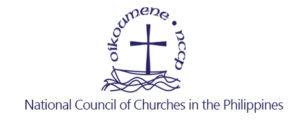International Human Rights Day observed under the shadow of death threats by KAIROS partners in the Philippines

On December 10, 2019 our partners from the National Council of Churches in the Philippines (NCCP) and Karapatan, both co-conveners of the Ecumenical Voice for Human Rights and Peace in the Philippines, led and participated in protests that commemorated the International Human Rights Day in the Philippines. At the end of the day, the Secretary General of Karapatan, an alliance of individuals, groups and organizations working for the promotion and protection of human rights in the Philippines, received phone calls and text messages threatening her with rape and death which she believes may have come from government or military officials.
A statement issued by Karapatan strongly condemns these threats. It indicates that “This latest attack confirms that as we commemorate Human Rights Day, the Philippines has regressed to an all-time low with regard to its protection and respect for women’s and people’s rights. Despite the passage of laws that are meant to protect women, such repulsive words will continue to be used against women and WHRDs (Women Human Rights Defenders) so long as toxic masculinity and macho-fascism remains dominant.” The report can be read here.
These threats follow the first set of submissions by NCCP, Karapatan and the National Union of Peoples’ Lawyers (NUPL) to the Office of the High Commissioner on Human Rights as part of an independent review being undertaken by the United Nations Human Rights Council (UNHRC) on human rights in the Philippines. These reports were submitted in response to a request communicated in the Iceland Resolution (UNHRC Resolution 41-2) which denounces ongoing human rights violations in the Philippines and calls for an independent investigation.
NCCP’s report attached details routine threats, harassment, detention and even extrajudicial killings perpetrated by government and military officials in response to their human rights work. The report indicates that because NCCP serves communities suffering from human rights abuses by the Philippines government that “the Council has an even more intimate knowledge of their impact. Because the NCCP and its member churches are compelled by faith to pursue justice and human dignity, their most active members have themselves faced harassment and even murder.” The report also details the process of red-tagging through which the government publicly identifies the members of groups that oppose it as being supporters of the communist New People’s Army, and subjects them to the types of violence described above.
We stand in solidarity with our partners in the Philippines and echo their calls for the Philippine government to:
- Stop human rights violations against church people and respect the freedom of religion and the exercise of ministries in furtherance of religious beliefs.
- Render justice to the victims of human rights violations committed by State security forces through proper investigation,prosecution and conviction of perpetrators.
- Address the pervasive climate of impunity, in particular, ensure speedy and proper investigation, arrest, prosecution and conviction of perpetrators.
- Rescind the government’s counter-insurgency program which has caused many human rights violations against human rights defenders.
- Issue invitations to pertinent UN special procedures and mandate holders especially those with pending requests.
The investigation into the human rights situation in the Philippines by the UNHRC followed a resolution introduced by Iceland and adopted by the UNHRC earlier this year which expressed concern over allegations of human rights violations in the Philippines, including extrajudicial killings, enforced disappearances, arbitrary arrests and detention, as well as intimidation and persecution of human rights defenders and others. We call on the Government of Canada to support the Iceland Resolution and recommendations to the UN Human Rights Council for an independent factfinding mission or a Commission on Inquiry on the human rights situation in the Philippines, and to fully implement Voices at Risk: Canada’s Guidelines on Supporting Human Rights Defenders in its relations with and development support in the Philippines.








